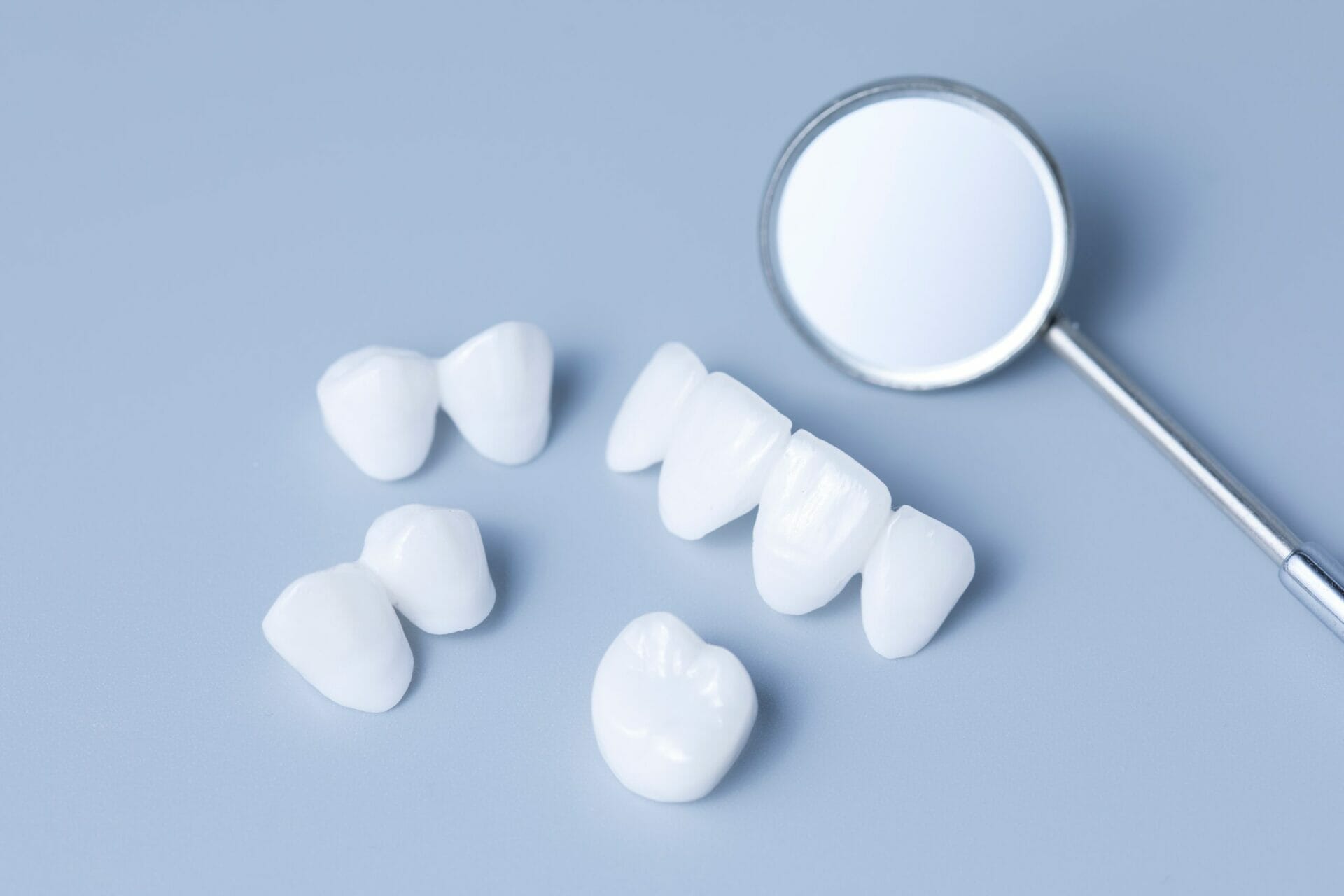
When a patient breaks a tooth, often (but not always) a crown is needed to properly repair it. "But, can't you just fill it?", or "just use your best cement..." are questions and comments I often hear. Generally, the need for dental crowns depends on a few things. They are:
Dental crowns act like helmets. A dental crown protects your tooth and holds it together, preventing future fracture. Can't you just repair future fractures? Not always. Teeth can split or break far under the gum line in a way that is not restorable. This means you cannot repair or salvage the broken tooth and it will require dental extraction.
Your Kitchener-Waterloo Dentist prepares your tooth for a dental crown and then bonds the crown to your tooth at the insert or delivery appointment. Dental crowns are not removable. Most patients often forget which teeth are crowned because there is no special maintenance for dental crowns.
Pursuing a Dental Crown in Kitchener? Here's a quick breakdown of the process: First, your Kitchener-Waterloo Dentist prepares your tooth by removing any decay or weaker areas. During this preparation, the Dentist shapes your tooth so that the crown can fit properly over top of it. We then take a highly accurate impression to capture the shape of the tooth. Next, the Dentist places a temporary crown on your tooth to protect it until your second (crown insert) appointment.
At your second appointment, your Kitchener Dentist removes the temporary crown, and seats the permanent crown for a “try-in”. The try-in allows your Dentist to ensure that:
If the crown fits well and looks great, the Dentist bonds it to your tooth. Excess cement is cleaned from around the crown and your gums. Your Dentist will typically recommend that you avoid hard or sticky foods around the crown for 48 hours. They will also recommend that you avoid flossing for 36-48 hours. This minimizes the likelihood that you loosen the crown as cement continues to set.
Dental crowns are very safe. The only safety concern with dental crowns (or any prosthetic material inside the mouth) would be allergic reaction. Some Dental Crowns, such as Porcelain-Fused-To-Metal (PFM) crowns, contain exposed metal alloy which may contain Nickel. Nickel is a very common allergy.
If you are embarking on Dental Crown treatment with your Kitchener-Waterloo Dentist, make them aware of any allergies (especially metal allergies) you have.
Crowns can be made of a number of different materials and so there is minor variability in cost between options. Generally, your Kitchener Dentist will provide a Dental Crown costing between $1,000 - $1,200. Most patients assume that gold crowns will cost much more than other types of crowns but this is, in fact, not the case. The reason for this is that gold alloys are easy to heat and shape so making these crowns takes less processing time work, overall.
In Dentistry, there are some things that are not time-dependant. However, with dental crowns, once your Dentist recommends one you should try to get it done sooner rather than later. But why? Lots of things accumulate wear and tear over time (think about cracks in your car bumper after a minor accident). Generally, as these things continue on without repair, cracks become larger and eventually a more major problem can occur.
This is the reason why you'd want to be timely about proceeding with a dental crown. Sooner rather than later is best. I have had patients tell me "well I'll wait until it breaks more to crown it". You can certainly do that but you increase the likelihood that the tooth breaks down to a point where it cannot be properly crowned. Or worse still, the next break could be a split or root fracture that your Kitchener Dentist cannot properly repair.
Dental Crowns are non-removable. They don't change the shape of your tooth or alter access for cleaning. Therefore, you can brush diligently and floss daily around your dental crown to maximize longevity.
How long do crowns last? Most dental research follows different treatments (i.e. dental bridges, implants, dentures) for 10 years. Dental crowns have a high survival rate at 10 years. The most common reason for failure is tooth decay or "a cavity" near the gum line. This is the area where the crown-tooth interface is. If the cavity is in an area that your Family Dentist can access, they will be able to repair it with a simple bonded dental filling. If, however, the cavity is in between teeth, repair will not be possible. Under these circumstances, a replacement crown will be needed.
My goal was to keep it brief today. I hope that reading these few paragraphs can help you to understand what crowns do and why they're important. If you'd like to read a more in-depth article about Dental Crowns, please check out my Definitive Guide to Dental Crowns.
Thanks for reading today!
Give us a call at (519) 576-8160 or request a consult here. We provide Dental Crowns in Kitchener, ON as well as a variety of other restorative services.
Our Kitchener Dental Clinic is conveniently located in Downtown Kitchener and we are a short drive away for families in Waterloo, Breslau & St. Jacobs. Our central location means we truly offer family dentistry near you!
This article is meant to promote understanding of and knowledge about general oral health topics. It is not intended to be a substitute for professional advice, diagnosis or treatment. Accordingly, always seek the advice of your Kitchener Dentist or other healthcare provider regarding a dental condition or treatment.
Services
Routine Dentistry & Tooth Repair
Oral Surgery & Tooth Removal
Prosthetic Dentistry & Tooth Replacement
Protective/Preventive Services
Teeth Whitening
Schedule an Appointment Now
